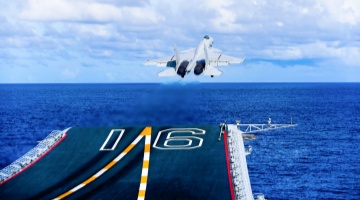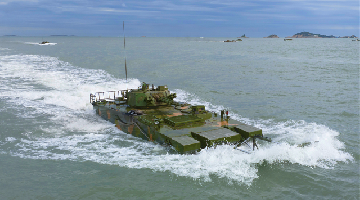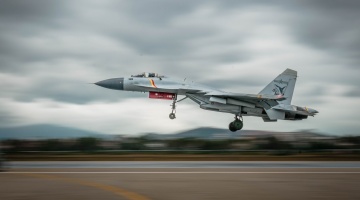By Liu Kaiand Li Dongxu
Ukrainian President Volodymyr Zelensky recently put forward a new ceasefire proposal during an interview with British media. He stated that he is willing to halt the active combat between Russia and Ukraine, provided that the territories controlled by Ukraine are placed under NATO protection. Once the territories controlled by Ukraine are placed under NATO protection, Ukraine will seek the return of occupied territories through diplomatic channels.
This is the first time since Ukraine's unsuccessful counteroffensive in the summer of 2023 that Volodymyr Zelensky has publicly supported the proposal to include Ukrainian-controlled territories in NATO. In response, Bloomberg reported that President Zelensky has sent the clearest signal yet to the West, indicating his readiness to end the Russia-Ukraine conflict without demanding the return of occupied territories. Russian military experts, however, believe that Zelensky's ceasefire proposal is aimed at halting the advance of Russian forces. The desire for Ukraine to join NATO suggests that Ukraine seeks to continue rather than end the war, which is unacceptable to Russia. Russia will no longer allow Western countries to arm Kyiv under the cover of an agreement.
Why did Zelensky change his position? Will this ceasefire proposal come true?
Analysts pointed out that the main reason for Zelensky's change of mind was the unfavorable war situation. Since the summer of 2023, despite the continuous increase of Western aid, the Ukrainian troops have not gained advantage. On the contrary, it has faced increasing pressure on all fronts. According to data from the Russian Ministry of Defense cited by TASS on December 1, the Russian army has taken control of 74 more settlements in the Donetsk, Lugansk, Zaporizhia, Kharkov and other regions, and recaptured 14 settlements in Kursk Oblast in the fall of 2024.
Ukrainian military expert Alexander Musiyenko believes that while Zelensky's proposal may not be the best option for the Ukrainian people, it is a plan based on reality and the relevant suggestions from Western countries.
Recently, public opinion in Ukraine has changed. According to a recent survey from polling agency Gallup, 52% of Ukrainians support ending the war as soon as possible through negotiations, a significant increase from 27% a year ago. Meanwhile, the proportion of Ukrainians determined to fight until victory has dropped from 63% to 38%. Ukrainian analysts believe that, given the current situation where Russian forces are gaining the upper hand on various fronts, an increasing number of Ukrainians may support a ceasefire and the pursuit of peace.
On November 27, President-elect Donald Trump has nominated Keith Kellogg to be the special assistant to the President and special envoy for Ukraine and Russia. According to Reuters, Kellogg had proposed a plan aimed at quickly ending the Russia-Ukraine conflict, which included using the increase or reduction of US military aid to Ukraine as leverage to force both Russia and Ukraine to engage in peace negotiations. The possible shift in US policy on the Ukraine issue after Donald Trump takes office is also one of the reasons for Zelensky to change his policy stance.
In early November this year, Russian President Vladimir Putin reiterated the two major conditions for resolving the Russia-Ukraine conflict, namely the neutralization of Ukraine and the determination of the border between Russia and Ukraine based on current realities. Obviously, the proposal of Zelensky this time is far from these two conditions. The BBC reported that it was unrealistic for Vladimir Putin to allow any part of Ukraine to join NATO.
There is widespread attention on how Donald Trump will intervene in the Ukraine crisis after taking office in January. Public opinion suggests that while President Vladimir Putin has expressed a willingness to discuss the Ukraine issue with Donald Trump, there are no signs indicating that he is prepared to make concessions to end the Russia-Ukraine conflict. Some analysts point out that various signs suggest the Ukrainian troops are rebuilding their forces and plans to launch a new round of counteroffensive operations in order to consolidate its defenses in eastern Ukraine and the Kursk direction. An article in Die Welt of Germany points out that the Russia-Ukraine conflict has escalated to a new level over the past two weeks, with both sides seeking to accumulate leverage before any potential future negotiations. Ukrainian military commentator Yevhen Zhyhii believes that if Ukraine can resolve its conscription issues this winter, and with comprehensive military aid from the West, the Ukrainian military may be in a position to launch a counteroffensive by early 2025. From this, it can be concluded that the prospects for a ceasefire agreement between Russia and Ukraine in the short term remain unlikely.













